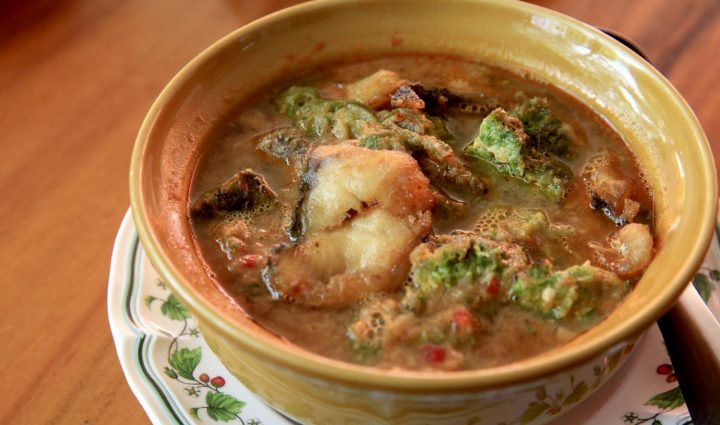
Despite coming in 12th in TasteAtlas’ most recent Worst-Rated Dishes in the World, a distinction which sparked lively debate among Thailand’s netizens, vendors have reported no drop in sales of kaeng som.
The sour curry received an average rating of just 2.3 out of 5 from readers at the popular culinary website.
In the wake of the controversy, the Bangkok Post spoke to food vendors, nutritionists and kaeng som enthusiasts, to see if kaeng som really deserves such a measly ranking.
Popular with locals
Despite its unfavourable ranking, vendors have not reported any drop in sales of the sour curry.
This, they say, is because most people who order kaeng som are Thais, who won’t find the dish’s spicy-sour flavour a surprise.
Saijai Muakchaiya, 60, who runs a local rice and curry joint, said there has not been any discernible change in sales in recent months.
“Sales of kaeng som are doing fine,” she said, before adding TasteAtlas’ rankings did not have any effect on the opinion of the average Thai consumer.
In fact, kaeng som was among the most popular dishes at her shop, along with kaeng kathi (coconut milk curry), and kaeng khiew wan (green curry).
Similarly, Krittiya Kanphuthon, 54, said dish’s newly-gained reputation has had no effect on her sales.
“It sells out as quickly. It always does,” she said.
Ms Krittiya said her kaeng som is just as popular with customers as the critically acclaimed massaman curry, which she also sells.
She said older customers prefer kaeng som over massaman curry because it doesn’t use coconut milk as an ingredient.
“Most are concerned about cholesterol, so they prefer kaeng som over others,” she said.
Panisa Yakares, 59, a food vendor, said her sales also remain normal.
“I sell kaeng som and it sells out every day,” she said.
“It is something that Thais are used to eating, and they will continue to do so.”
Consumers unaffected
Phawinee Chiewchan, a 51-year-old kaeng som enthusiast, said, the kaeng som ranking will not affect her perspective.
“In the end, whether you like it or not is entirely up to you.
“The dish is fantastic; I feel refreshed eating it,” she remarked, adding that it is ideal for those who are looking to adopt a healthier lifestyle.
“Kaeng som is beneficial for your health since it contains a lot of veggies and fish, and it does not contain coconut milk.”
Health benefit
While opinions on kain’t som may vary depending on who you ask, its health benefits can be proven through testing.
According to Nichapan Thirakomonpong, a 48-year-old nutritionist at the Ministry of Public Health’s Bureau of Nutrition, kaeng som is good for those who are on a diet due to its low calorie and oil content.
The dish typically includes a variety of vegetables that provide essential fibres and minerals for the body, and fish is an easily-digestible source of protein, she said.
Ms Nichapan said the sodium content of kaeng som might vary depending on the region.
The southern version tends to have higher sodium levels, and consumers should be mindful of not consuming too much, Ms Nichapan advised.
Subtle differences
TasteAtlas describes the dish as a “sour, water-based Thai curry that is typically prepared with fish or shrimp and a thick paste that usually incorporates shallots, chillies, and shrimps”.
It also mentions different ingredients depending on the region.
In southern Thailand, turmeric is frequently used as an ingredient, while in central Thailand, tamarind pulp is used to provide a sour flavour.
According to Krittiya, a home-based food vendor, southern kaeng som “will be spicier, while the central version tends to be milder.”
The easiest way to tell them apart, she said, is by looking at the colour.
“The southern one will be more yellow due to the incorporation of turmeric and cumin.
“The central version, meanwhile, generally includes more vegetables,” she said.

